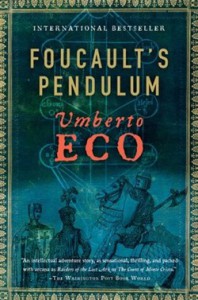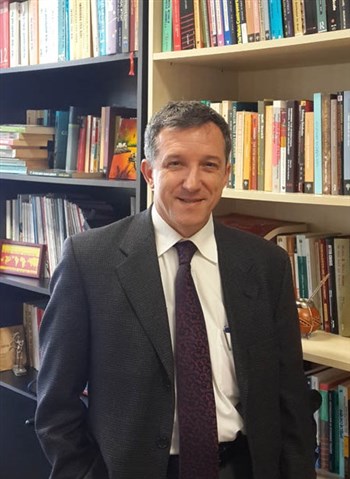Erinç Yeldan, Professor, Department of Economics
BY MELİS ERDEM (ARCH/II)
It’s very hard to come up with one single book that has had an impact on your career, life, feelings and expectations. But I think Umberto Eco’s “Foucault’s Pendulum” is one of the books at the top of my list. I read this book in the mid-90s. As you may know, Umberto Eco is a multifaceted intellectual. He has a very strong grasp of history, especially European Renaissance history, and of the meaning and role of religious or mythological beliefs outside of religion itself, as well as a very strong understanding of 20th- and 21st-century capitalism and global economics and political science.
I think the main message I got from the book was the notion that one should see everything as connected, especially in the social sciences, rather than specializing in or focusing on one particular area, one particular subject. The book gave me an appreciation of the Turkish economy and of political economy as a whole. Everything that has occurred in history has been linked to people’s mythological beliefs and their ideologies, and thus one can explore how ideologies have shaped the world and how economic realities have produced new ideologies. Mysticism, religious beliefs, dogmas and also advances in science and technology are part of a general process.
Coming back to the book, it’s about the Templars, who were a group of private soldiers during the Crusades. They were responsible for organizing civic life in lands where the Crusades took place. They re-Christianized the region, establishing new rules as well as law and order. So, this is part of the organization of a new society, as the book puts it. At one point, the heroes speak among themselves and note how different groups within the Templars are connected with each other. The point here is that everyone is connected, but everyone knows this, so it’s not that interesting. If you really want to come up with an interesting connection, if you can, for example, find a connection between the Torah and the spark plug of a car, now that is interesting.
 So I have used this example in some of my exams and assignments. If you can find a connection between the sacred book of Judaism and an ordinary industrial product, you can then trace the roots of this connection to see its interesting aspects. In terms of my career, I focus on real data. I don’t like theory for the sake of abstract theory. Theory should be grounded in empirical realities. And empirical realities should be validated by the expectations of theories. But empirical reality, in itself, doesn’t mean much. We therefore come back to connections again. Theories are connected, but they should be grounded by validation.
So I have used this example in some of my exams and assignments. If you can find a connection between the sacred book of Judaism and an ordinary industrial product, you can then trace the roots of this connection to see its interesting aspects. In terms of my career, I focus on real data. I don’t like theory for the sake of abstract theory. Theory should be grounded in empirical realities. And empirical realities should be validated by the expectations of theories. But empirical reality, in itself, doesn’t mean much. We therefore come back to connections again. Theories are connected, but they should be grounded by validation.
So, at the risk of overdramatizing and overgeneralizing the book’s contribution to me, I find such a broad vision of mind—one that can draw lessons and make connections from history, in particular medieval history, all the way through to the late 20th century by means of a literary tour de force—very interesting and very attractive.

